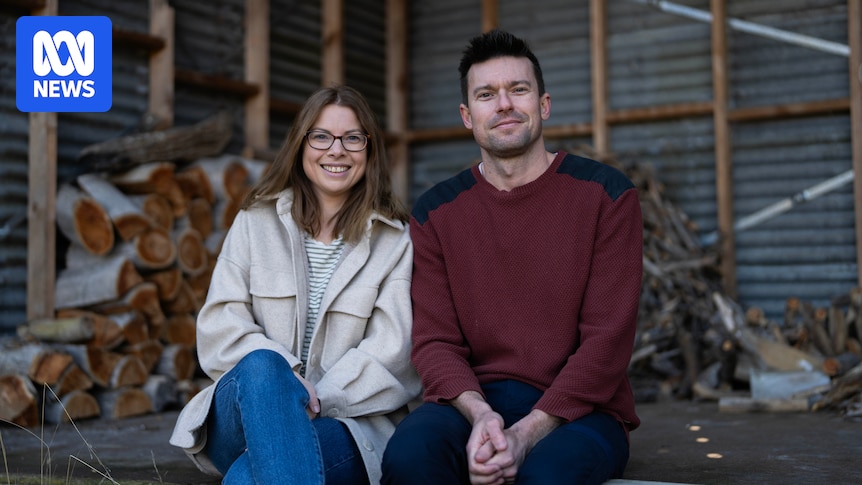
Tucked away in the southern Tasmanian bushland, Eily Stevenson and Jon Oliver are embarking on a transformative journey towards off-grid living. Originally from Sydney, the couple relocated to Tasmania, drawn by its weather and lifestyle. “We knew we wanted to have a family, and the idea of raising a young family off-grid in nature was really attractive to us,” Ms. Stevenson shared. “We are outdoor nature lovers, and I cannot think of a better place actually in the entire world… Tassie is right up there with the most beautiful, pristine places.”
The couple purchased their bush block a few years ago, which already had a dwelling on it. Now, they are transitioning the property off-grid, meaning they will disconnect from the main electricity grid and potentially other public utilities like water and sewerage. Their first major task will be switching the home to solar power, for which they have budgeted approximately $25,000 to include up to 24 panels and a few batteries. “The up-front benefits will be at a financial loss, but I think when you factor in all the costs projecting out five to ten years, it will pay for itself,” Mr. Oliver explained.
The announcement comes as off-grid living gains popularity, driven by both financial motivations and a desire for self-sufficiency. The couple has already invested $45,000 on their driveway and access, with plans to spend $18,000 on improving the septic system, $3,000 on adding two additional water tanks, and $25,000 on house upgrades.
Evolution of Off-Grid Living
Phillipa Watson, a research fellow at the Australian National University, has been studying the social change in energy uptake across Australia for two decades. Although there is no national database on the number of people living off-grid, Dr. Watson noted an increase in activity by power companies over the past decade to create more off-grid systems for customers. This shift is largely due to the affordability of solar power systems.
“The old school off-gridders needed to have a lot of technical knowledge and were getting involved either because they had to, or they really, really wanted to,” Dr. Watson said.
She explained that newer households are considering off-grid living due to the high costs of new connections in remote areas, which can be comparable to installing an off-grid system. With increased uptake, technical support has become more accessible, allowing even those without technical expertise to manage off-grid systems effectively.
The Appeal of Self-Sufficiency
For Stevenson and Oliver, the move represents more than just financial savings. They are building a vegetable garden to increase their self-sufficiency, a common theme among those embracing off-grid living. Mr. Oliver mentioned that while their property is already connected to the electricity grid, starting from scratch would make solar the obvious choice.
However, transitioning to off-grid living is not without challenges. Council regulations can pose significant hurdles, as Ms. Stevenson advised, “Contact your local council if you’ve got your eye on a property to make sure that you can do everything, that it’s permitted.”
Dr. Watson added, “Especially in Tasmania, we see a really strong resourcefulness streak… people who are just really, really proud of being efficient.”
Looking Ahead
The move towards off-grid living is not just a trend but a reflection of a broader societal shift towards sustainability and self-reliance. As more individuals and families consider this lifestyle, the financial and psychological benefits become increasingly evident. “The psychological benefits of knowing that you are living off the land and producing a lot of your own resources is really attractive,” Ms. Stevenson concluded.
As technology continues to advance and become more affordable, the off-grid lifestyle may become an increasingly viable option for those seeking independence from traditional utilities. The journey of Eily Stevenson and Jon Oliver serves as an inspiring example of how off-grid living can offer both a return to nature and a forward-looking approach to sustainable living.







